When society talks about being pregnant, the overwhelming idea is one of unparalleled joy. After all, who hasn’t heard of the “pregnancy glow”. However, no matter how much you wish to have a baby, pregnancy and childbirth are not easy.
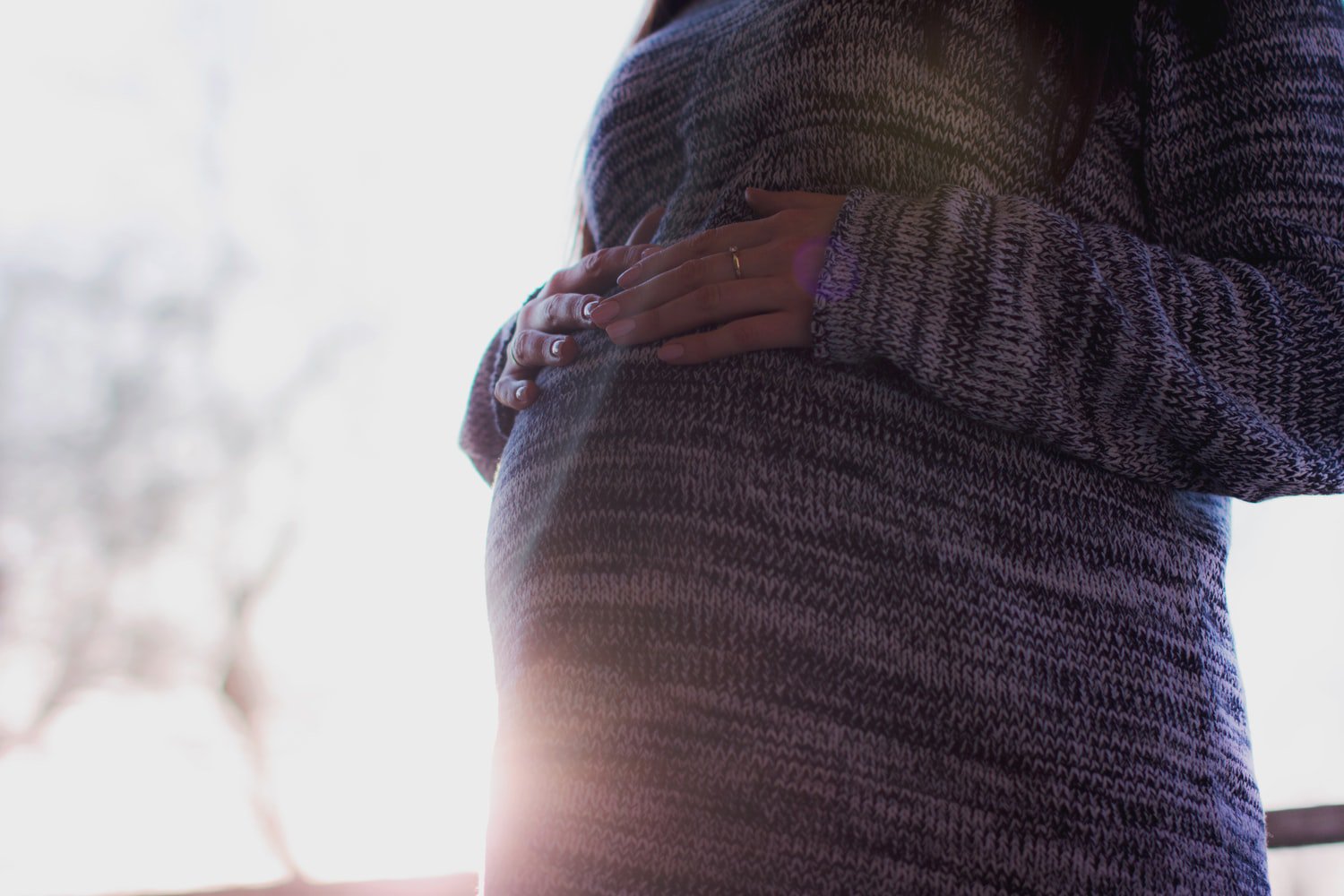
Carrying a life inside you for 9 months is no piece of cake, and childbirth is even harder. And even women who give birth by choice can not ignore or will away the pain of childbirth. This is why it’s high time we take a look at things no one tells women about childbirth. Like these:
1.The way your water breaks is nothing like it’s shown in most movies and shows.
A fluid-filled membranous sac called the amniotic sac cushions your baby during pregnancy. And when this sac ruptures, it is referred to as water breaking.
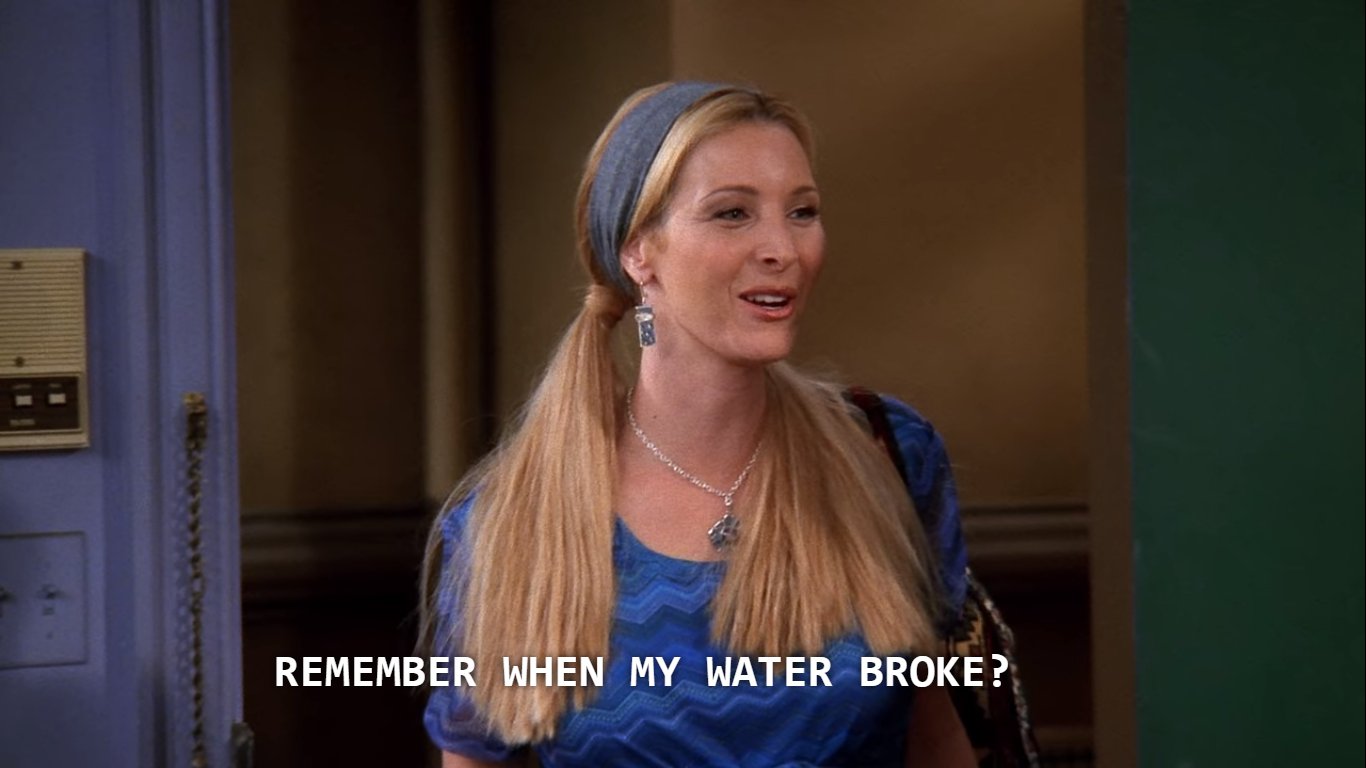
However, in most cases, water does not break in splatter on your feet. Rather, it is usually a slow and steady trickle of fluid, perhaps similar to uncontrollable peeing.
2. You may not always be able to tell immediately if your water has broken.
As per reports, in some cases you can not tell if your water has actually broken or not:
It might be difficult to tell the difference between amniotic fluid and urine — especially if you only experience a feeling of wetness or a trickle of fluid.
-Mayo Clinic Staff

3. Just because your water breaks, does not mean you’re immediately going to give birth.
Contractions begin within 12 to 24 hours of your water breaking. In some cases, if your water has broken prematurely, it may take longer for contractions to begin. And it may take even more time before your cervix is dilated enough to push out a baby.
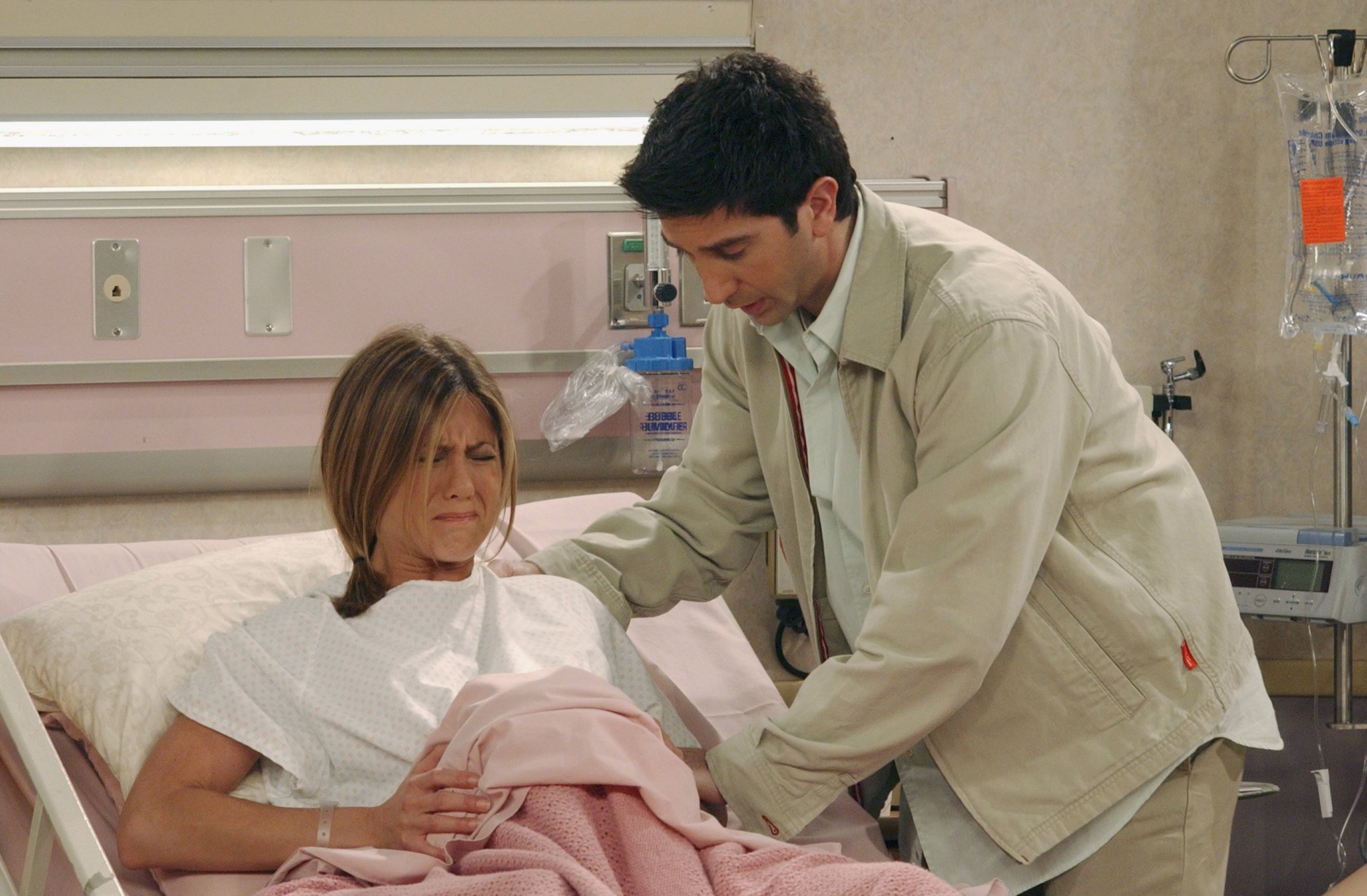
4. Sometimes, your water may not break on your own.
Yes, in certain cases doctors have to induce labor, which may cause the water to break. In these cases, an amniotomy is performed. Herein, doctors use a thin plastic hook (called amniotomy hook) or amniotomy finger to create a small opening in the amniotic sac and release the fluid. It’s supposed to be uncomfortable, but not particularly painful.
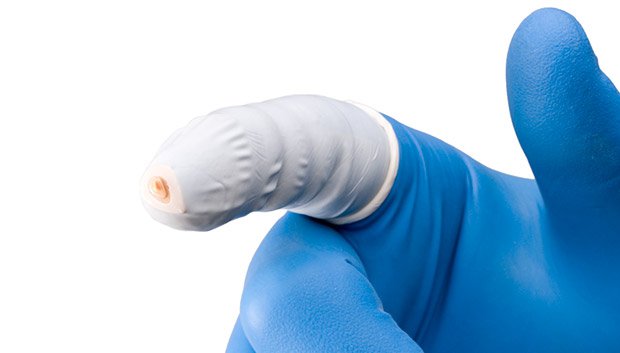
5. However, whether it is induced or natural, things can and do get “extremely wet” during labor and childbirth.
How…..wet everything can get. If your water breaks and you have a slow leak… there’ll be fluid at home, in the car, in the waiting/triage area, in your room, in the hallway, in the bathroom. Combined with all the blood loss and peeing yourself, and it’s almost like a slip-n-slide trying to get around.
-Reddit User (cheddarchexchick)
6. No one but you (and your doctor) should decide whether you need pain medication or an epidural or not. You are there to have a baby, not to win a contest on the pain threshold.
Though menstruation gives an idea about how painful childbirth and contraction can be, the actual event is far more intense for most women.
According to reports, contractions can cause pain in the abdomen and the lower back, could be equal to or stronger than period cramps and can last for hours.
It hurt. Bad. My epidural only made my right leg dead. So, I felt every contraction, and I had pitocin to induce my labor. It sucked. A lot. I was shaking and vomiting from the pain. I wish my contractions were like menstrual cramps. It would have been a breeze.
-Reddit user (madeofstarlight)
I wonder if women are embarrassed to admit that they did feel pain because it means they “failed” at labor. I had a natural birth and I read a few books about these techniques, especially self-hypnosis. They helped, totally, but labor and delivery still hurt like a word I’m not allowed to say here. Maybe they helped me relax a little, but it was still intensely painful and exhausting. I labored through the night before my child was born. It was basically a blur of rocking through a contraction, resting, then contracting again. Early afternoon of the next day, I was in the hospital pushing, which was very intense, but not that painful. I know, it sounds crazy, but the contractions leading up were the worst part, not the part where the baby comes out.
-Reddit user (cellists_wet_dream)
The pain wasn’t as gradual as I was expecting. I went from “this is fine” to “this is not fine make it stop” in maybe half an hour. But then you have to wait before they can get you set up with an epidural, so it’s hard to avoid that “not okay” period entirely.
-Reddit user (leasaur)

And there is absolutely nothing wrong with taking medication for the pain. It does not make childbirth any less natural. And this Reddit thread covers both, the pros and cons, of having an epidural.
I actually thought the epidural was pretty painful (because of the curvature of my back, it took them three tries to get it placed correctly – which meant six needle sticks), but I am still so insanely happy I got it, and will be getting another when the second baby comes. It’s a personal decision, but definitely don’t let anyone shame you or try to sway you in one direction or another.
-Reddit User (shayna9787)
I would 100% recommend the epidural. I went from screaming and in intense pain to happily having a conversation and joking with my husband. It only took a few hours to wear off after birth too. Also, don’t fear the needle because at that point you’re already in so much pain you won’t even notice and they provide a topical to numb that area of your back.
-Reddit User (right_meow08)
In case you get an epidural, it could be painful to get the injection, you will most probably need to take a catheter, and you need to request it a little in advance, as an epidural is not administered after a certain stage of labour.
7. There is a very real possibility that you may poop while giving birth. It’s nothing to be embarrassed about.
The muscles that are working to push the baby out of your body are the same muscles that are used while pooping. And reports indicate that “most women do poop during labor”.
However, you’re giving birth to a real-life human, and doctors and nurses have seen it all. Thus, there is absolutely nothing to be embarrassed about.
8. You most probably will need stitches.
People tend to assume that only a c-section delivery needs stitches. However, that’s not true. During birth, there is a possibility of your perineum (area between your vagina and back passage) over-stretching and tearing, which may need stitches to repair.
I had stretch tears on either side of my urethra that burned like actual fire otherwise! I should have had a few sutures but absolutely refused because I was in so much pain. So, take the sutures if they say you should have them!
-Redditro
I tore a tiny bit on my labia, which they stitched, but a poop strain tore one of the stitches. Now I have a little notch like a torn cat’s ear. Sigh.
-Reddit user (Pivazena)
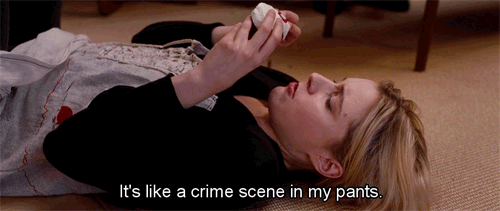
Though considered to be not as common, doctors may, at times, also carry out an episiotomy i.e. enlarge your vaginal opening through a cut in your perineum, which may later need stitches.
Your baby’s weight and position during delivery may also lead to skin being torn. Ideally, the stitches should dissolve in a few weeks but can cause pain and discomfort, especially when peeing.
It hurts to pee afterwards, but if you lean forward on the toilet then the pee goes away from the most painful areas. Also try and time your pain relief around trips to the toilet or other strenous activities.
-Reddit user (Irisaura)
Your pelvic floor is fucked. Sneeze pee is still a thing.
9. Your vagina is going to look different.
Your vagina is going to look like a nightmare after. Don’t look at it or touch it, put ice packs and medicine on it but don’t investigate. I repeat: DO NOT INVESTIGATE. You’ll just keep yourself up at night fretting over what happens if it never goes back to normal. But if you do choose to look know that it won’t look like your labia just lost the title fight forever.
At the end of my pregnancy with my second my vagina was a swollen weird mess that I wish I had not looked at with a mirror. I checked up a few days after giving birth and it was pretty much back to normal.
10. You can have contractions even after birth.
Contractions are actually common during the post-partum period, because your uterus is shrinking back to its original size. Though they decrease with each passing day, they can cause pain similar, or more intense, to menstrual cramps. As per reports, they can last up to 10 days and may strike during breastfeeding or pumping.
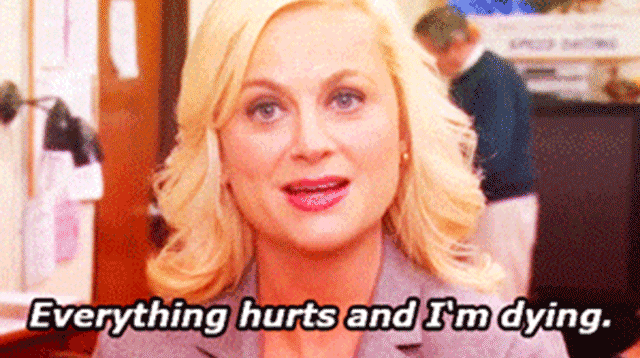
11. You might have to wear maxi pads or even a diaper after your delivery, due to Lochia.
Most new mothers experience postpartum bleeding and may need to wear a pad or even a disposable diaper. This bleeding, called Lochia, is different than menstruation and can last up to 10 days. It can also happen irrespective of whether you have a vaginal birth or via c-section. According to What To Expect:
Postpartum bleeding is normal and natural: Your body is ridding itself of all the extra blood, mucus and tissue it needed during pregnancy. As a result, you’ll experience postpartum bleeding whether you gave birth vaginally or had a C-section. Lochia is typically heavier and dark red in color for up to 10 days after giving birth, and then transitions into lighter bleeding or spotting that can last for four to six weeks after delivery. For the first six weeks, use only pads, even if you need pads as thick as your baby’s diapers.
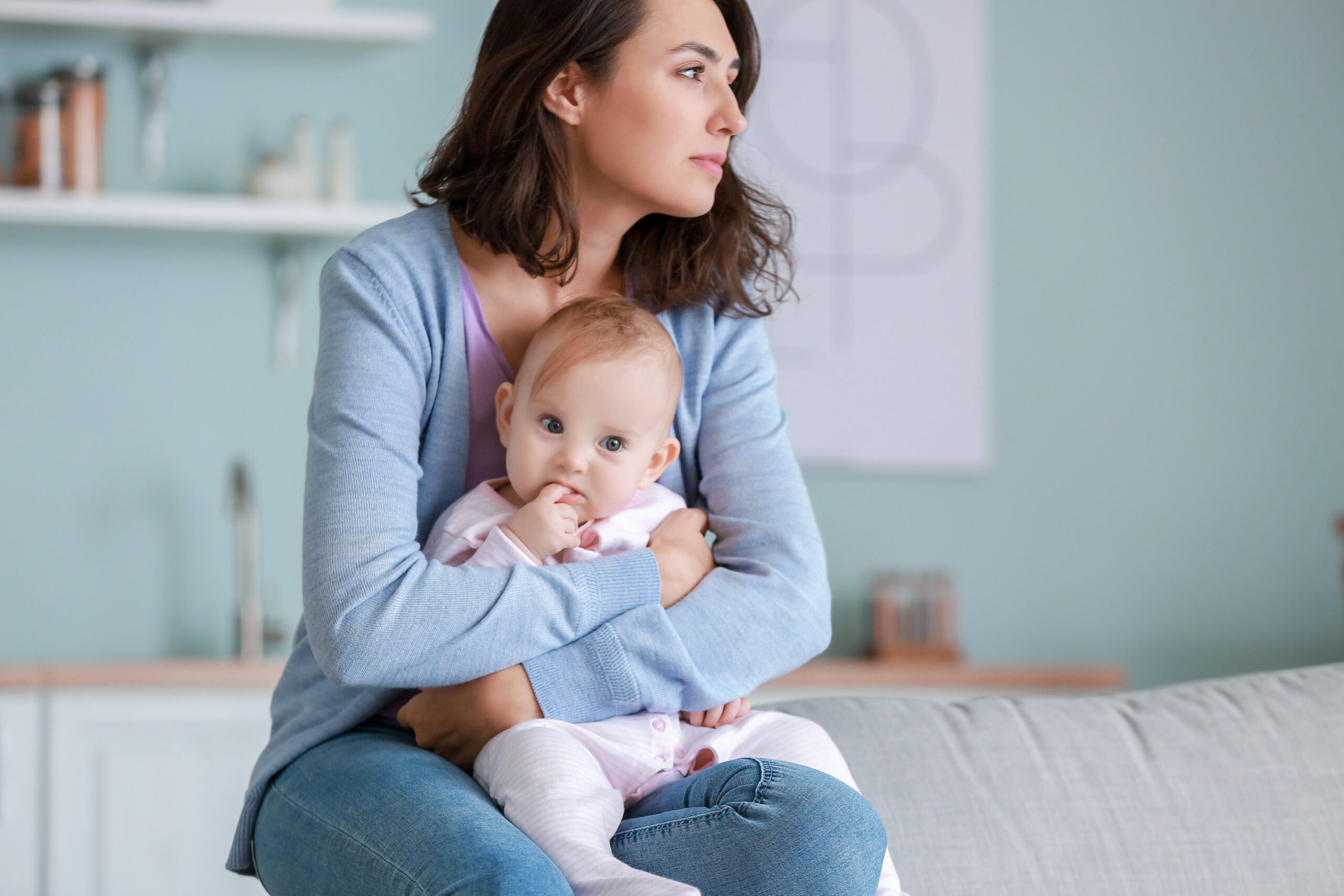
12. Babies may not always be able to latch on to breastfeed.
Not all babies automatically latch on to breastfeed, and there are multiple reasons why this may happen. However, it’s very important to work through those issues with proper care. Additionally, some women may choose pumping over breastfeeding, and there is absolutely nothing wrong with that. It is also okay to go with a mix of two. The bottom line is, it should be a new mother’s choice.
PPD will turn into full-blown depression if not addressed. I take offense to the “natural birth warrior” trend. You are not more of a woman than me because I had a c-section. You are not a better mother than me because you were able to breastfeed.
-Redditor
13. Post-partum depression is real and common.
Sameera Reddy was one of the first Indian celebrities to openly address the issue of post-partum depression, a condition that afflicts 22% of women in India.
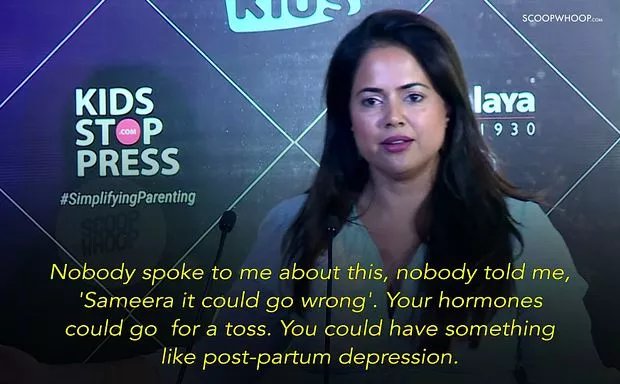
But post-partum is not only common but can also have far-reaching effects if not treated timely. And it can affect anyone. Just like other mental health issues, it’s time we normalize post-partum depression as well, and support women getting the care they need
I was like the perfect pregnant person and during delivery, I was a champ. Everything the way it’s supposed to be. But my PPD almost killed me. It’s no fucking joke, and too many people brush it off.
-Reddit Thread
A lot of people treat birth, and everything after, likes it’s the ultimate test of womanhood – with any action that prioritizes mom’s health as selfish bullshit. PPD is no joke. Trauma is a thing. Hormones suck. All bodies are different. FFS please don’t try to “power through it.” Get help. Get support. Don’t wait. And please don’t be that asshole that tells someone “it can’t be THAT bad” or “all babies are hard,” if you really don’t/can’t understand the situation (actually. Just don’t say that stuff. It’s not productive at all. Maybe lead with “how can I help?”).
-Reddit Thread
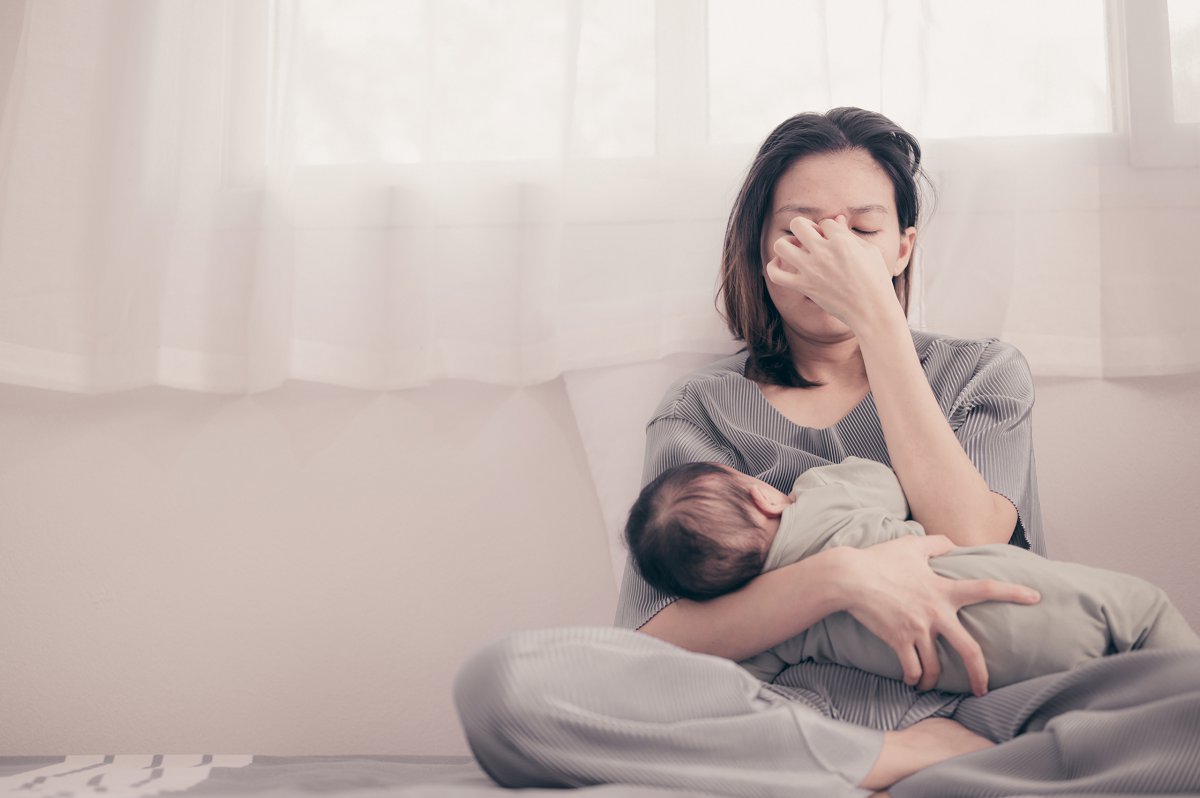
What people forget is that just like no two human beings are the same, similarly, no two childbirth experiences can be the same. It’s important that every woman giving birth has the choice, and access, to the kind of care she requires without fear of judgement. Pregnancy and childbirth are long, painful processes. Let’s not make them any harder.

















